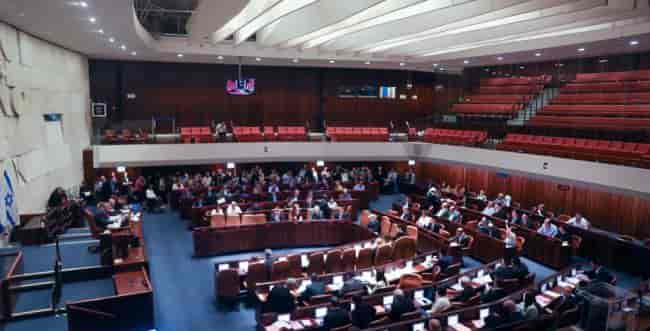The Summer Conference Accomplishments
Not (only) the legal reform: what did the MKs accomplish at the summer conference?
After three months of summer conference, the Knesset goes into recess. The coalition management is summarizing the legislation and trying to emphasize the parliamentary action beyond the legal reform, especially in the social and economic sphere

After the summer conference ended yesterday (Sunday) - which also marks the end of the first session of the current Knesset - the coalition is summarizing the legislation of the last three months, and trying to prove that there was parliamentary action beyond dealing with legal reform.
The summer session opened on May 1st and lasted for three months, during which approximately 47 laws were passed in the second and third readings, along with 83 proposed laws in the first reading and 194 proposed laws in preliminary readings.
Among the laws passed in the second and third readings, one can find the proposal to increase tax credits for working parents (an addition of up to 470 NIS per child aged 6-18), imposing severe financial penalties on businesses exploiting the elderly or vulnerable populations, harsher punishment for sexual offenses with nationalistic motives, and reimbursement of travel expenses for the mobile intensive care unit to the family of a deceased patient or to a hospice patient.
Other laws that were finally approved: the law to reduce the Clause of Reasonability, the law to mark the country of production of agricultural produce, in order to encourage the purchasing of local produce, the IDF disabled bill - significant benefits for the IDF disabled in the fields of cars and housing, as well as the bill for tax breaks on the purchase of an apartment for an orphan.
The Knesset also approved the two-year state budget and the accompanying settlement laws, which grant the government "industrial peace" until March 2025.

"Dozens of important bills for the citizens"
Among the proposed laws that were passed in the first reading and will continue in the next session are: Tougher penalties for attackers of medical and emergency teams, a law requiring diplomats or consuls to declare loyalty to the State of Israel, an increase in tax credits for students serving in the reserves, and a law to help terror victims receive compensation from the terrorists who committed the acts in civil suits.
As mentioned, the Knesset is now going on a summer and holiday break. The winter session, which will open the next Knesset term, will begin on October 15th – a week after the end of the High Holidays.
According to the Chairman of the Coalition, MK Ofir Katz (Likud): "This was a successful session, during which significant work was done, and dozens of important bills were passed for the benefit of the State of Israel and its citizens. We take care of the citizens, and we work every day to enact and promote measures that improve life in all areas: economic, social, healthcare, and more. We will continue to act for their well-being."

Join our newsletter to receive updates on new articles and exclusive content.
We respect your privacy and will never share your information.
Stay Connected With Us
Follow our social channels for breaking news, exclusive content, and real-time updates.
WhatsApp Updates
Join our news group
Follow on X (Twitter)
@JFeedIsraelNews
Follow on Instagram
@jfeednews
Never miss a story - follow us on your preferred platform!